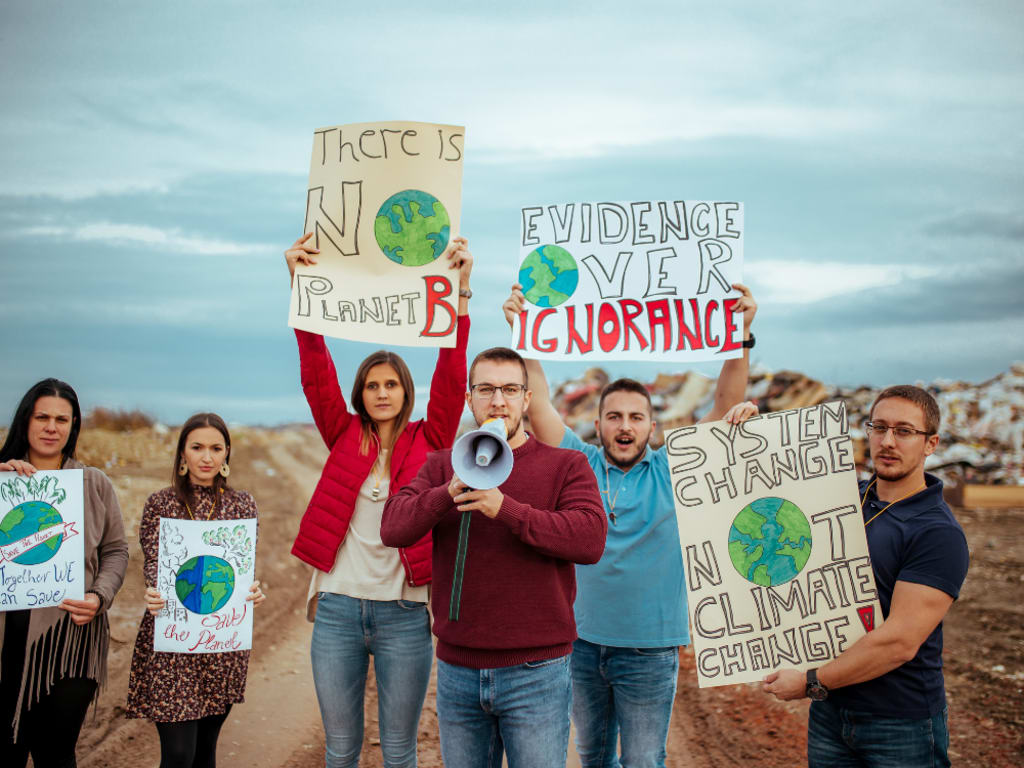How Indigenous Communities Can Lead the Way in Climate Action
Guided by Ancestral Wisdom, Pioneering Climate Solutions: The Leadership Role of Indigenous Communities in Shaping a Sustainable Future

Indigenous communities, with their deep connections to the land, traditional knowledge, and sustainable practices, play a crucial role in climate action and environmental stewardship. This article explores how Indigenous communities can lead the way in addressing climate change, highlighting their unique perspectives, resilience, and contributions to sustainable development. By recognizing and supporting Indigenous-led initiatives, we can forge a path towards a more inclusive, equitable, and sustainable future for all.
Indigenous Knowledge and Climate Resilience
Indigenous communities possess a wealth of traditional knowledge that has been passed down through generations. This knowledge encompasses a deep understanding of local ecosystems, weather patterns, and natural resource management. Indigenous knowledge systems offer insights into climate adaptation strategies, such as sustainable agriculture, water management, and land restoration, which have sustained communities for centuries.
Guardians of Biodiversity and Ecosystems
Indigenous lands often overlap with areas of high ecological value, including forests, wetlands, and coral reefs. Indigenous peoples act as custodians of these ecosystems, employing traditional practices that promote biodiversity conservation and sustainable resource use. Their holistic approach to land management recognizes the interconnectedness of all life forms and emphasizes the preservation of ecological balance.
Traditional Practices and Low-Carbon Lifestyles
Indigenous communities have historically embraced low-carbon lifestyles, relying on renewable energy sources, such as solar, wind, and biomass, and adopting sustainable practices that minimize waste and resource consumption. Their traditional livelihoods, rooted in harmony with nature, offer lessons in sustainable living that can inspire broader climate action and foster the transition to a green economy.
Climate Change Impacts on Indigenous Communities
Indigenous communities are often disproportionately affected by the impacts of climate change, including rising temperatures, changing precipitation patterns, and increased frequency of extreme weather events. These changes disrupt traditional livelihoods, compromise food security, and threaten cultural practices and identities. Recognizing the unique vulnerabilities of Indigenous communities is crucial for addressing climate justice and ensuring their rights to self-determination and cultural heritage.
Indigenous-Led Renewable Energy Projects
Indigenous communities are at the forefront of renewable energy initiatives, harnessing their land-based resources to generate clean energy. From wind farms on tribal lands to solar installations in remote communities, these projects not only reduce greenhouse gas emissions but also provide economic opportunities and energy independence. Supporting Indigenous-led renewable energy projects promotes community empowerment and sustainable development.
Traditional Ecological Knowledge and Climate Science
The integration of traditional ecological knowledge with scientific research can enhance climate change understanding and inform effective adaptation and mitigation strategies. Collaborative partnerships between Indigenous communities and scientists foster mutual learning and enrich climate science by incorporating Indigenous perspectives, observations, and practices. Such partnerships facilitate innovative solutions and bridge the gap between science and Indigenous wisdom.
Indigenous Rights and Climate Justice
Respecting and upholding the rights of Indigenous peoples is central to climate justice. The United Nations Declaration on the Rights of Indigenous Peoples recognizes the rights of Indigenous communities to their lands, territories, resources, and traditional knowledge. Climate action must prioritize the free, prior, and informed consent of Indigenous peoples, ensuring their active participation in decision-making processes that affect their lands and livelihoods.
Indigenous-led Conservation and Land Management
Indigenous-led conservation initiatives demonstrate the power of traditional land management practices in preserving biodiversity and mitigating climate change. Practices such as controlled burning, rotational grazing, and forest stewardship promote ecosystem health, carbon sequestration, and the preservation of cultural landscapes. Supporting Indigenous-led conservation efforts contributes to global biodiversity conservation goals and climate resilience.
Indigenous Voices in Global Climate Negotiations
Indigenous communities have a crucial role in global climate negotiations and policy-making processes. Their voices and perspectives enrich discussions on climate change mitigation, adaptation, and finance, ensuring that policies are inclusive, equitable, and grounded in the realities of Indigenous peoples. Empowering Indigenous representatives to participate in these forums strengthens the global response to climate change.
Collaborative Partnerships and Knowledge Exchange
Collaborative partnerships between Indigenous communities, governments, NGOs, and the private sector are key to fostering Indigenous leadership in climate action. These partnerships can facilitate capacity-building, resource-sharing, and knowledge exchange, promoting Indigenous-led initiatives and amplifying their impact. Such collaborations recognize the inherent value of Indigenous knowledge systems and foster a sense of collective responsibility in tackling climate change.
In conclusion, Indigenous communities possess invaluable knowledge, resilience, and sustainable practices that can guide us towards a more sustainable and climate-resilient future. Recognizing and supporting Indigenous-led initiatives is crucial for achieving climate justice, conserving biodiversity, and promoting sustainable development. By embracing Indigenous knowledge, engaging in meaningful partnerships, and upholding Indigenous rights, we can harness the power of Indigenous communities to lead the way in climate action and create a more just and sustainable world for generations to come.
Enjoyed the read? Show your support for my future pieces with a small contribution. Every gift counts!
About the Creator
Gokhan Polard
As an experienced ERC Referral Specialist, my primary dedication lies in assisting businesses in the journey towards financial success. https://ercsolutionshub.com/






Comments
There are no comments for this story
Be the first to respond and start the conversation.